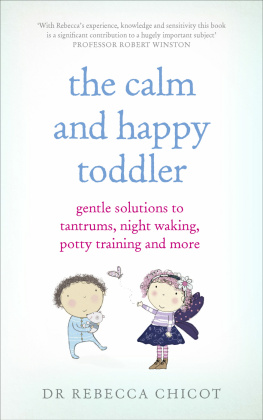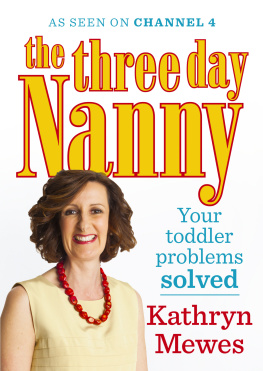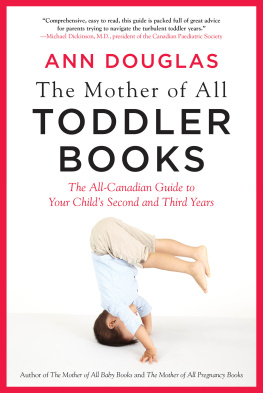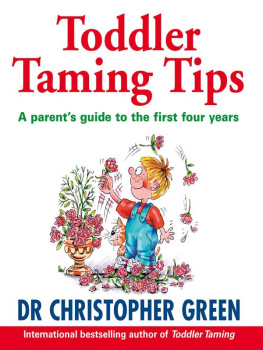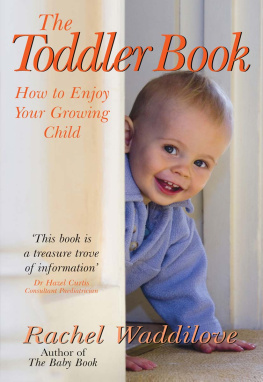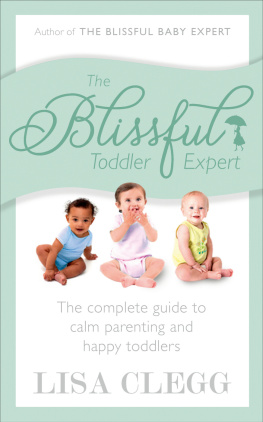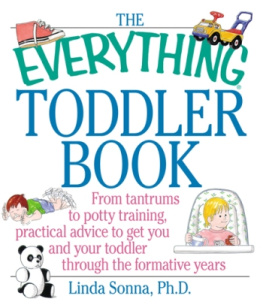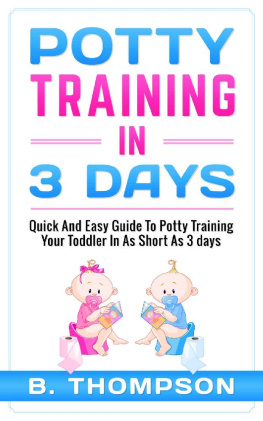Contents
This ebook is copyright material and must not be copied, reproduced, transferred, distributed, leased, licensed or publicly performed or used in any way except as specifically permitted in writing by the publishers, as allowed under the terms and conditions under which it was purchased or as strictly permitted by applicable copyright law. Any unauthorized distribution or use of this text may be a direct infringement of the authors and publishers rights and those responsible may be liable in law accordingly.
Epub ISBN: 9781473527591
Version 1.0
1 3 5 7 9 10 8 6 4 2
Vermilion, an imprint of Ebury Publishing,
20 Vauxhall Bridge Road,
London SW1V 2SA
Vermilion is part of the Penguin Random House group of companies whose addresses can be found at global.penguinrandomhouse.com

Copyright Dr Rebecca Chicot 2015
Dr Rebecca Chicot has asserted her right to be identified as the author of this Work in accordance with the Copyright, Designs and Patents Act 1988
Toddler yoga illustrations Stephen Dew 2015
Chapter opener illustrations Katie Saunders 2015
Permission to quote from Raising Blaize by Debra Ginsberg, 2002, has been kindly granted by the author herself
First published by Vermilion in 2015
www.eburypublishing.co.uk
A CIP catalogue record for this book is available from the British Library
ISBN 9781785040108
introduction
Im afraid the parenting advice to come out of developmental psychology is very boring:
pay attention to your kids and love them.
Professor Alison Gopnik
WELL DONE! YOU have successfully loved and cared for your newborn baby and guided him or her as they have developed from a helpless infant to a walking, talking toddler. Sometimes, at the toddler stage, it can feel like all that hard work and experience counts for very little as toddlers are so different from babies.
The good news is that over your first months with your baby you bonded and got to know lots about them. You are the world expert in your baby, and with a little understanding about toddlers, their minds and their development, you will be able to carry on and feel confident as you guide and love your toddler through this unique and invigorating stage in life.
The Calm and Happy Toddler has, at its foundation, four simple pillars of parenting that will stand you and your toddler in good stead:
- warmth
- boundaries
- consistency
- being present
Who am I and what do I know about toddlers?
I am a mum to three lovely children (Miranda, Benedict and Iris) and I have a PhD in Child Development and Parenting. My potted history is as follows: I was lucky enough to complete my PhD at the Sub-Department of Animal Behaviour at the University of Cambridge. This might seem a strange place to study children (or perhaps not!) but the department has a long history of exploring the bond between parent and child, whether in primates (such as the world-famous work done by Jane Goodall on chimpanzees) or as in my work, which looked at bonding and behaviour in humans. I didnt have children at that time but will never forget the powerful lessons I learned from the mums and children who came along to my laboratory to take part in the experiments I developed.
During my PhD I became a firm believer that all this wonderful research should be shared with the public, so I left Cambridge and moved to the BBC Science Department. There I worked on many programmes about understanding human behaviour. The experiments I developed were used in the television series Child of Our Time, presented by Professor Robert Winston. With the support of Professor Winston I co-founded The Essential Parent Company with a BBC colleague, Diana Hill, and together we launched The Essential Baby Care Guide (the worlds first visual parenting guide). The guide is narrated by Professor Winston, with onscreen experts from The Royal College of Paediatrics, Child Health and UNICEF, among others.
The Essential Baby Care Guide provides demos to new parents on those things that are hard to read in a book, for example, how to latch on a baby to breastfeed, how to do the glass test to identify a meningitis rash, and what your babys poo should look like! The guide is now used by parents, NHS maternity hospitals, health visitors, GPs, the NCT and even by The Royal College of Paediatrics to help train junior doctors. I continue to spend a lot of time researching and assessing the best evidence-based information for new parents.
The early years in a childs life are so vital for development, happiness and resilience. This book shares what Ive learned about the precious and wonderful time when your baby begins to become mobile and assert his or her independence in the world. Toddlerhood and toddlers are wonderful and I hope my book brings you and your toddler calmness, understanding and happiness.
How to use this book
Remember: you are the world expert in your own toddler! As a parent who has already successfully looked after your baby for well over a year you should feel confident that no one loves and understands your toddler like you do. A one-size-fits-all approach cant work for everyone; I want this book to encourage and hone your own expertise.
This book aims to provide you with ideas that take into account your toddlers developmental stage, personality, temperament and physiology. By understanding how your toddler thinks and what changes she is going through, you can respond with confidence and stop sweating the small stuff.
Whether you need help with tantrums, night-waking, potty training or fussy eating youll find:
- tactics to help you cope with every toddler scenario
- research from child psychologists to help you understand why your toddler is behaving like that in that moment
- toddler milestones for each area of development to show you how your toddler is changing, and how best to enjoy and encourage her mental, social and emotional development
- ideas to help you through the common toddler hurdles that all parents go through, from potty learning to tantrums and everything in between.
You can either go straight to an area that you are fire fighting with your toddler or you can read a whole section on, for example, cognitive development to help put your toddlers behaviour into an overall context. Or you can map where your toddler is on the quick look milestone charts in each development section (physical development, language and social development, emotional development and cognitive development) (see ) to help you gauge the help and support your toddler needs now.
I have included some suggestions for mini quizzes you can do with your toddler to get a better understanding of how her mind is working, what she understands, and how she is changing over time.
The quizzes are not scientifically rigorous and they are not meant to pigeonhole you or your toddler; they simply give you a framework to help you explore your toddlers behaviour, development and personality in order to gain understanding and confidence as a parent.
Some of them have been adapted from questionnaires developed to help psychologists assess aspects of parenting, child behaviour and development, but they are my attempt at helping you think and gauge your toddlers behaviour in a structured way without feeling stressed or judged or like a failure. They should allow you to switch off your internal parenting critic and instead understand your toddler now and calmly think about a solution to a particular challenge you are experiencing with your toddler.

